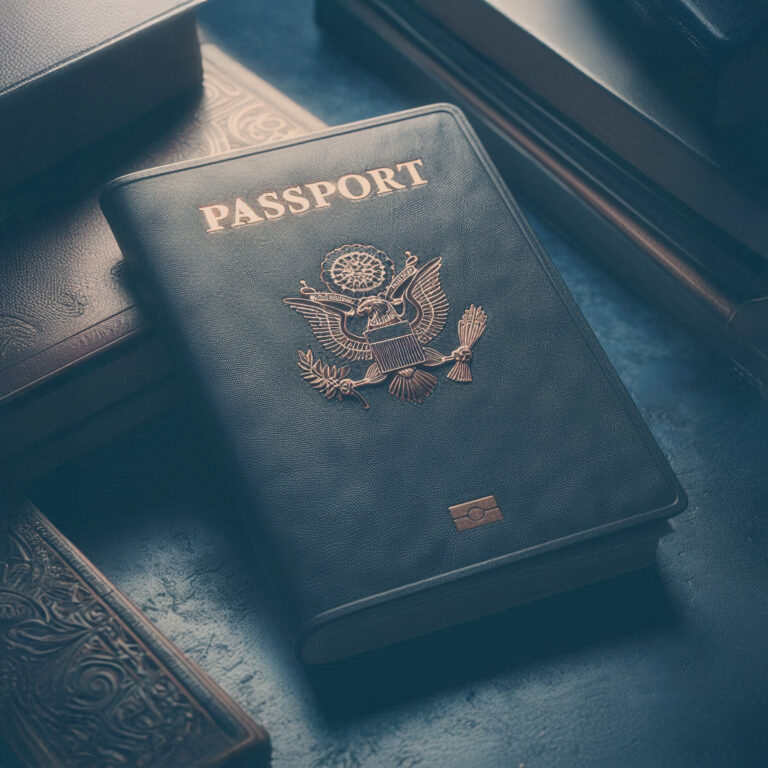New Italian citizenship law – May 2025
Following the issuance of the Italian Decree n. 36/2025 which significantly impacted Italian citizenship law (especially by descent), on May 20, 2025, the Parliament converted the above indicated decree into law. Accordingly, starting from March 28, 2025 (the day in which the Decree was issued), among other things (not all discussed in this article) the procedure to be recognized as an Italian citizen by descent has been drastically changed.
A – The new legal requirements
If you are an individual born abroad, even before March 28, 2025, in order to be recognized jure sanguinis, you must now have either:
1) A parent or grandparent who holds, or held at the time of his/her death, exclusively Italian citizenship; or
2) A parent or adoptive parent who officially resided (that is, normally, who was registered with the anagrafe office) in Italy for two consecutive years after obtaining his/her Italian citizenship and before your date of birth or adoption; or
3) submitted an Italian citizenship application by descent: i) via the administrative procedure, that is to the territorially competent Italian Consulate or Municipality, or ii) (filed) via lawsuit or, as a potential applicant, you must have received official notification of an appointment (for a later date) to submit an application via the administrative procedure, by 11:59 PM CET on March 27, 2025

B- The new Procedural rules
In the context of the filing of lawsuits for the recognition of Italian citizenship by descent, barring certain exceptions, oath and testimony are not allowed as means of proof. Moreover, the burden of proof seems to have been switched entirely upon the plaintiff and it is now up to the applicant for Italian citizenship to provide for proof of the non-existence of the causes of non-acquisition or loss of citizenship provided for by law (art. 2-ter, D. Lgs, n. 150/2011: “Nelle controversie in materia di accertamento della cittadinanza italiana chi chiede l’accertamento della cittadinanza è tenuto ad allegare e provare l’insussistenza delle cause di mancato acquisto o di perdita della cittadinanza previste dalla legge.”) which seems to entail the necessary acquisition and submission of additional documents (which were not requested before the new law came into force).
C- The Circular n. 43347 and the “minor rule” interpretation
The new law, per se, doesn’t affect the Circular n. 43347 dated October 3, 2024, of the Ministry of the Interior. Adopting the guidance of the Italian Supreme Court, the directive clarified– while re-interpreting Italian law 555/1912 (and, the Civil Code of 1865) – that an Italian citizen (focusing on the head of the family) who lost his Italian citizenship as a consequence of the voluntary acquisition of a foreign nationality concurrently caused his minor child living with him to lose the Italian citizenship, even if said child was born in a country that applied jus soli (and therefore, the child was a dual national at birth: Italian citizen by paternal descent based on the principles of jus sanguinis and foreign citizen based on the place of birth in accordance with the principles of jus soli). In all such cases, therefore, the citizenship line of transmission is now to be considered discontinued; in other words, according to the Italian government, as of the date of his or her father’s naturalization, the minor in question no longer has the ability to pass on the right to his or her prospective descendants unless he/she carried out a deed to recover Italian citizenship after becoming an adult (and before the birth of his/her own child).
The above interpretation of the law is not, per se, law and it might accordingly be challenged in court as a judge of first instance might disagree with it (keeping in mind however that the interpretation is inspired by two decisions by the Italian Supreme Court which, while not strictly binding, has/should have a substantial weight on lower courts and which would be ultimately competent in case of subsequent appeals).
D- Potential concerns of violation of the Italian Constitution and other possible arguments
The new law saves lawsuits and applications already pending before March 28, 2025 but it might still be potentially unconstitutional as it substantially applies retroactively to Italian citizens that merely needed to be recognized while, possibly, it should have applied only to newborns.
The topic is extremely articulated and still subject of discussions among scholars, but, roughly speaking, there are certain potential concerns with regard to the new law:
1) it could be argued that it discriminates between applicants who had an Italian ancestor born in Italy and those whose Italian ancestors (through descent) were born in a foreign country;
2) it could be argued that it applies retroactively to people who were substantially already Italians (they merely needed to file an application or a lawsuit to be recognized as such) while it should have applied only to the future, and
3) it gave no time window for interested parties to apply/file a lawsuit before the new changes took effect (as it took effect immediately).
Other possible challenges to the law (which, at least in theory -as it is too soon to understand all the relevant implications- has only partly touched the “1948 cases”) are, for instance, for those potential applicants who took substantial action to submit their applications or schedule an appointment with the Italian authorities before March 28th 2025, who might accordingly try to argue (in court) that they should be subject to the previous citizenship rules (including those interested potential applicants who were unable to submit their applications or book an appointment through no fault of their own – i.e. for lack of available appointments or for having being placed on a waiting list).
However, at this stage there are no guarantees that, if any of the above challenges were raised, for instance in the context of a citizenship lawsuit, such challenges would be successful.

E – Recognition of Minors
The new law states (art. 4, paragraph 1-bis, of Italian Law 91/1992) that a foreign minor child whose father or mother is an Italian citizen by birth can become an Italian citizen if the parent/guardian makes a declaration for the minor to acquire Italian citizenship and either:
1) following the declaration, the minor legally resides in Italy for at least two consecutive years, OR
2) The declaration is submitted within one year of the birth (or the date of adoption) of the minor.
F- Reacquisition of Italian Citizenship
The new law also changes the reacquisition procedure for those who, born in Italy, lost their Italian citizenship later on in life according to the Italian law n. 555/1912. Now, individuals who were born in Italy and who lost citizenship in compliance with the 1912 Italian citizenship law can reacquire it if they make a declaration between July 1, 2025 and December 31, 2027.
G – Citizenship by Residency for children or grandchildren of Italians at birth
The new law has also amended the requirements for obtaining Italian citizenship by residency for children or grandchildren of Italian citizens by birth. Now, if you have a parent or grandparent who is/was an Italian citizen by birth (regardless of the fact that they might have later obtained a foreign citizenship), you can apply for Italian citizenship after 2 years of residency in Italy (rather than after 3 years of continuous residency as before).
H- Relocating to Italy with a work permit for descendants of Italian citizenship
For those interested in finding another way to obtain Italian citizenship, for instance by residency, an option might now be focused on obtaining a work visa outside of the yearly decree quotas, pursuant to a new rule set forth by the new legislation. Now, indeed, a foreigner residing abroad that is a descendant of an Italian citizen, based on certain requirements, may enter and reside in Italy for employment related reasons (actual employment, that is, in this case, NOT self-employement), outside of the maximum quotas set, on a yearly basis, for work visas (the relevant details will be regulated by un upcoming decree).
***
Further amendments to citizenship law may be introduced in the near future, as the topic remains at the center of political debate in Italy, including potential implications arising from the upcoming referendum in June 2025.
Please note that the information provided above is a general overview of some of the key aspects of the new procedure and does not constitute legal consultation on any specific case. Each situation requires a thorough assessment based on its unique facts, supporting documentation, and the applicable legal framework, including relevant case law.
If you are considering applying for Italian citizenship by descent and have concerns about how the above changes might impact your case, please feel free to reach out. We are available to evaluate your specific circumstances and its theoretical feasibility.








